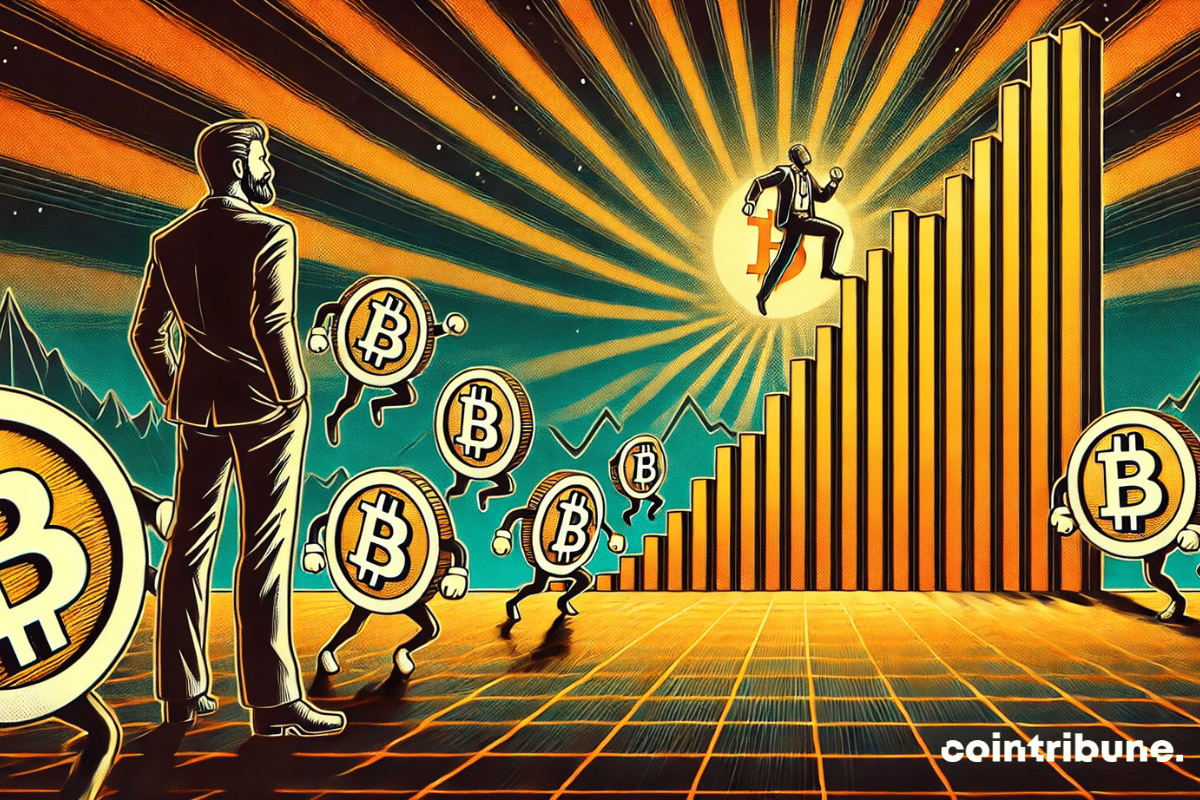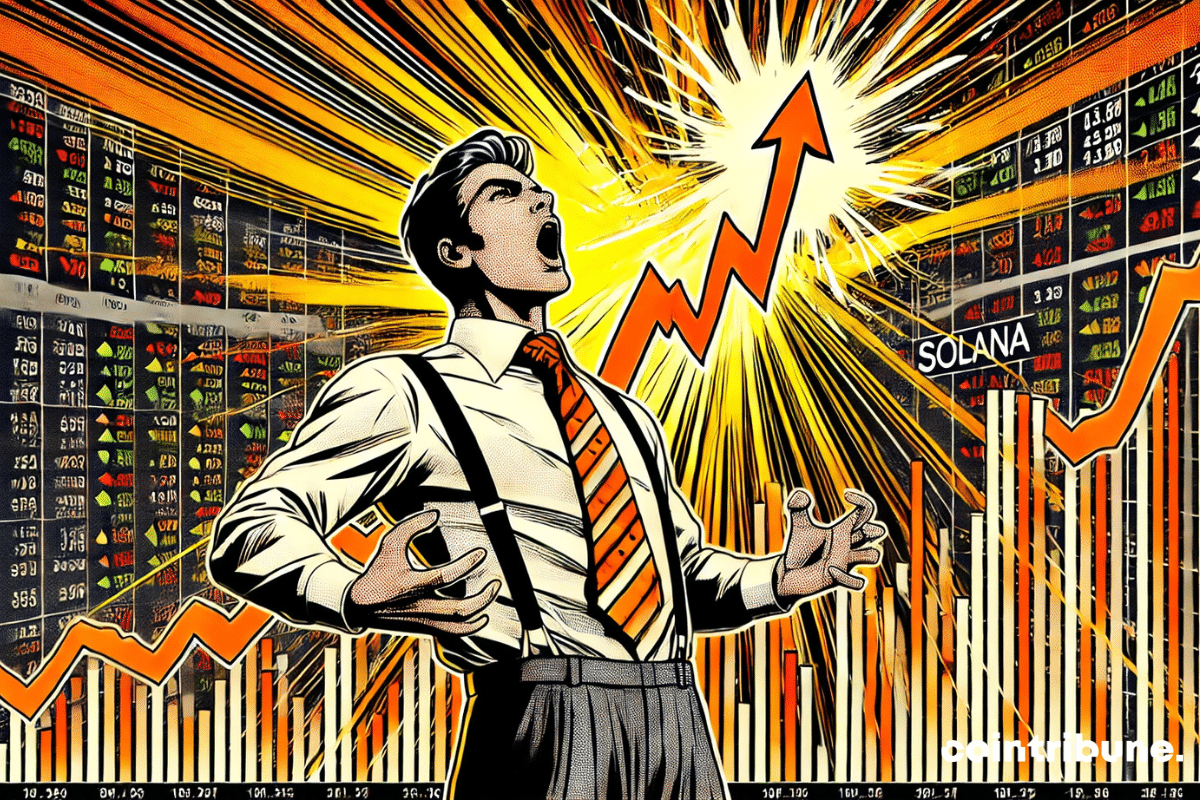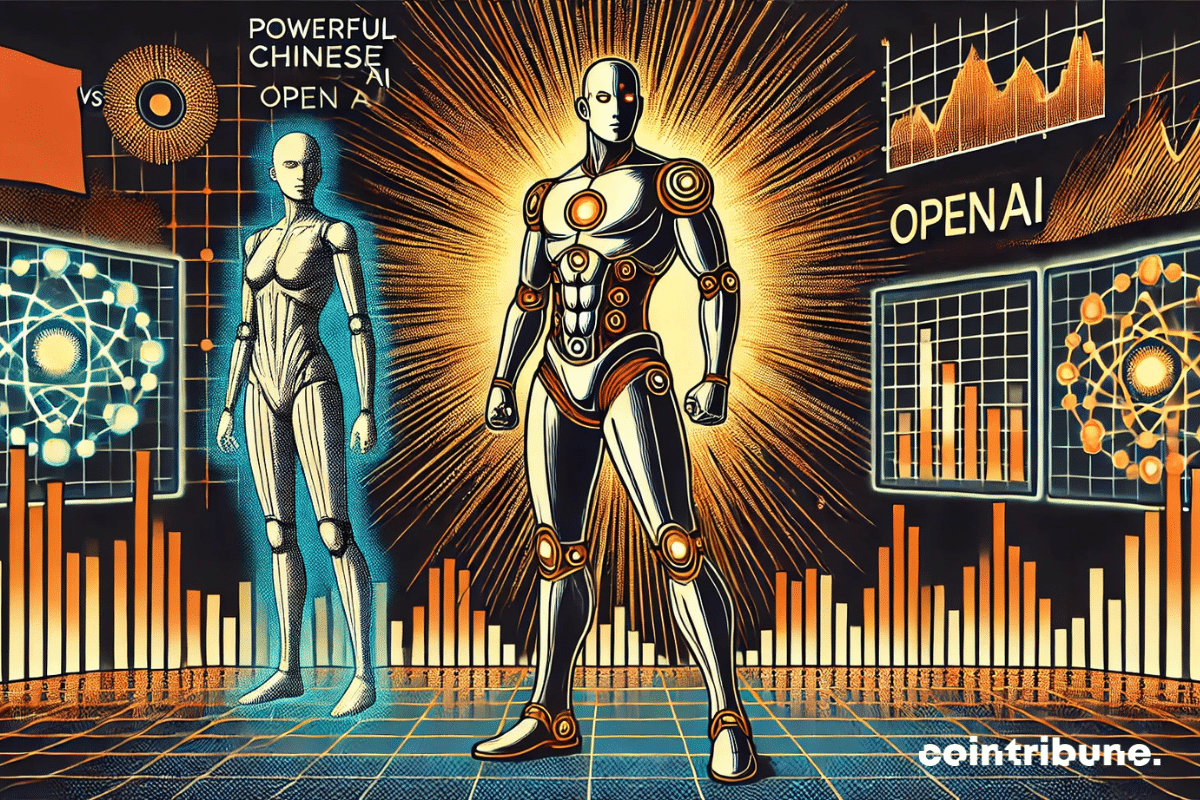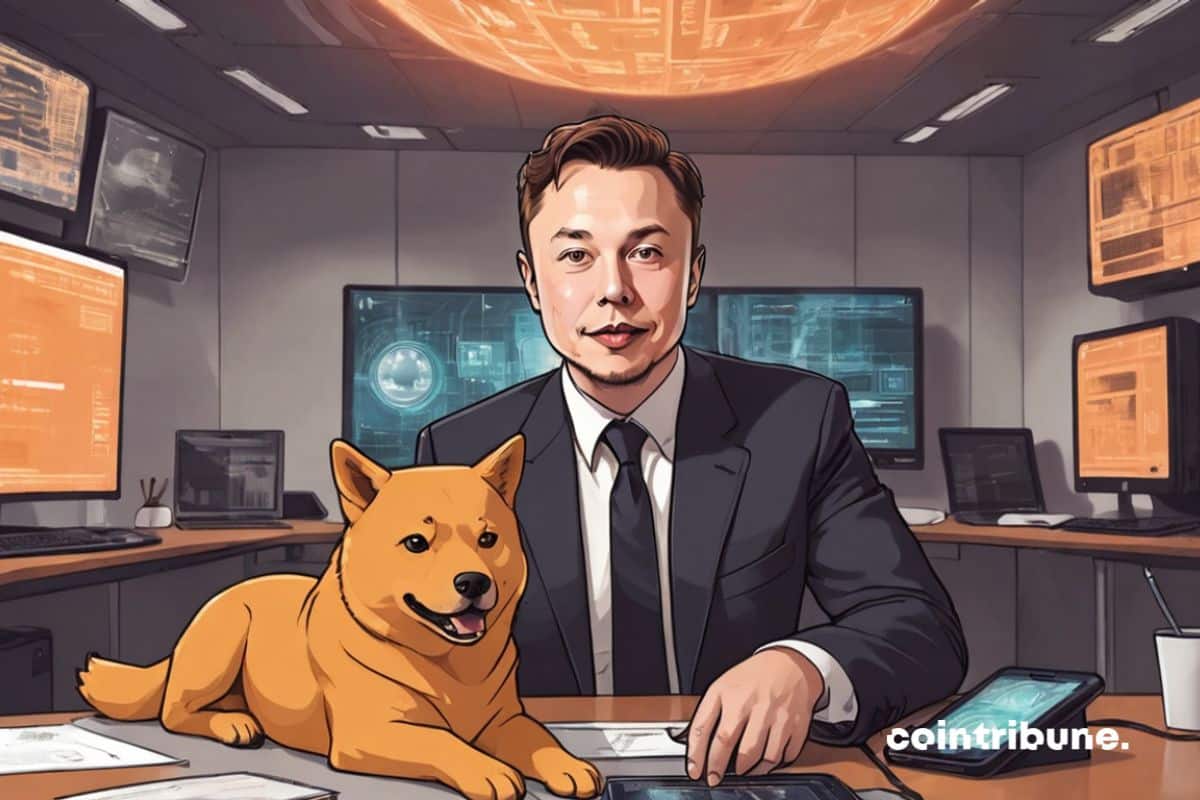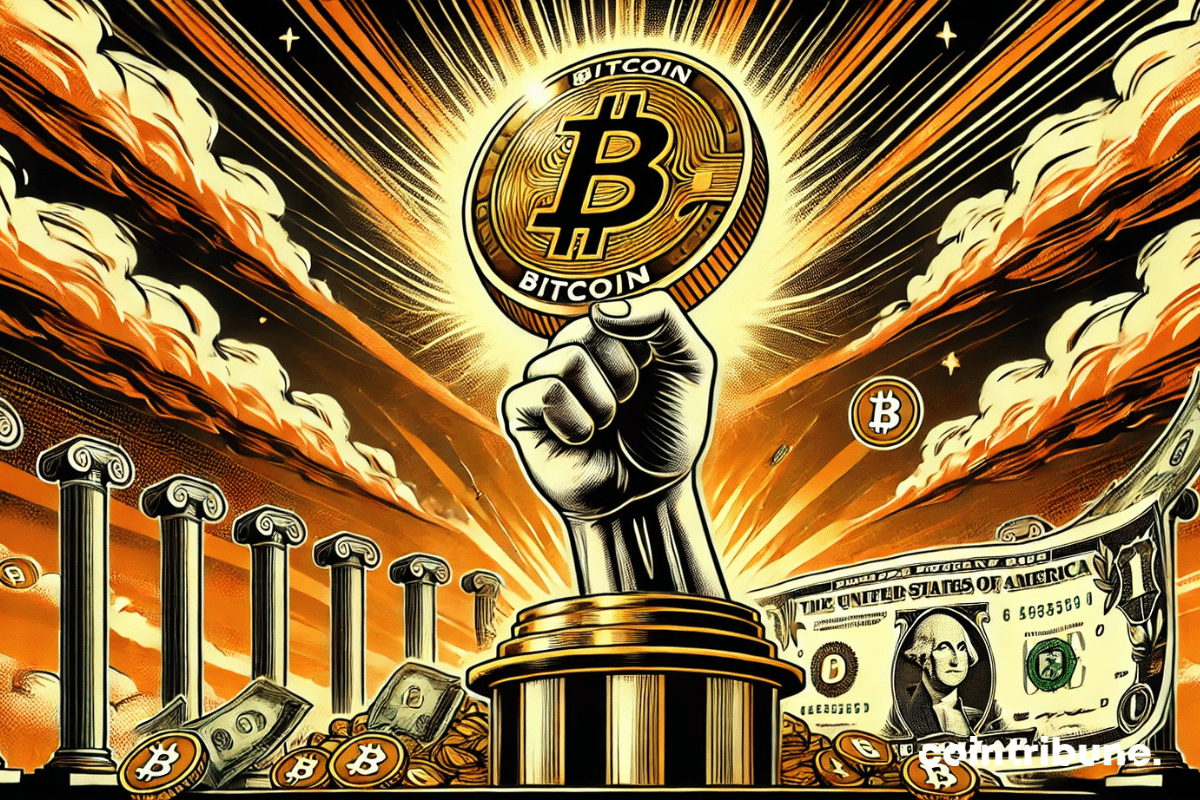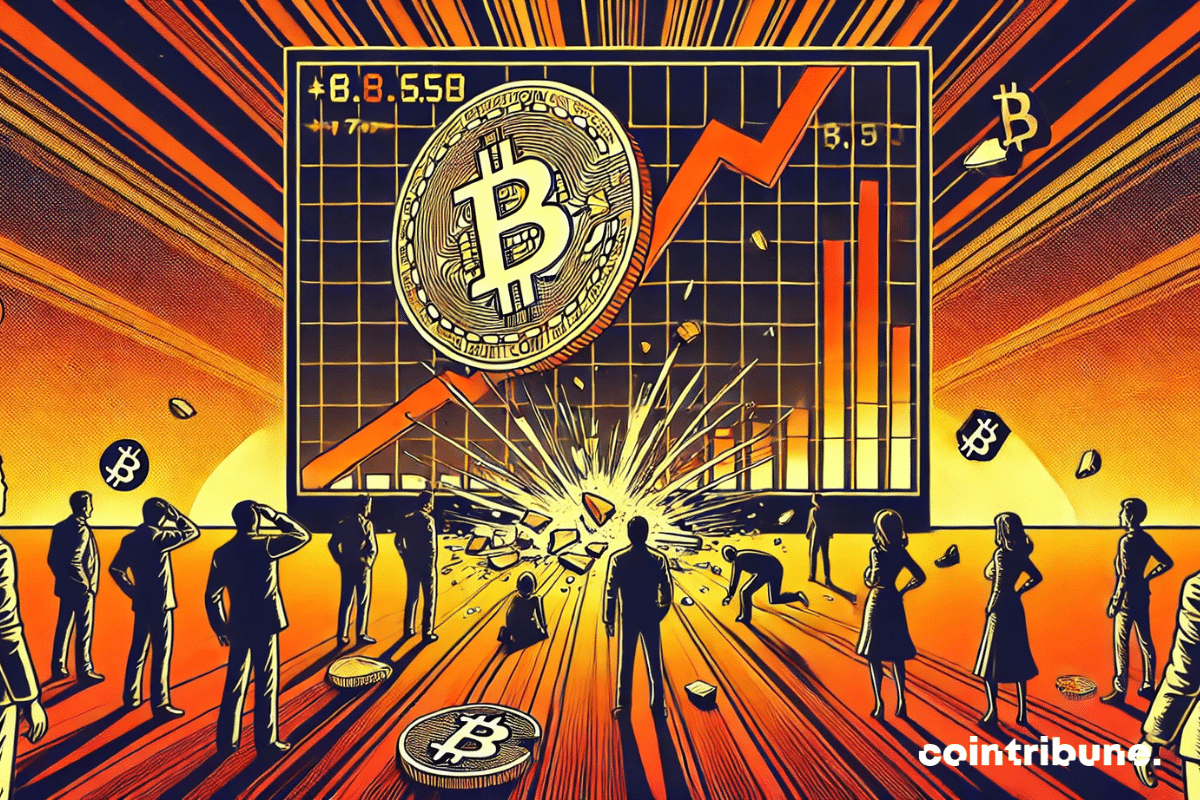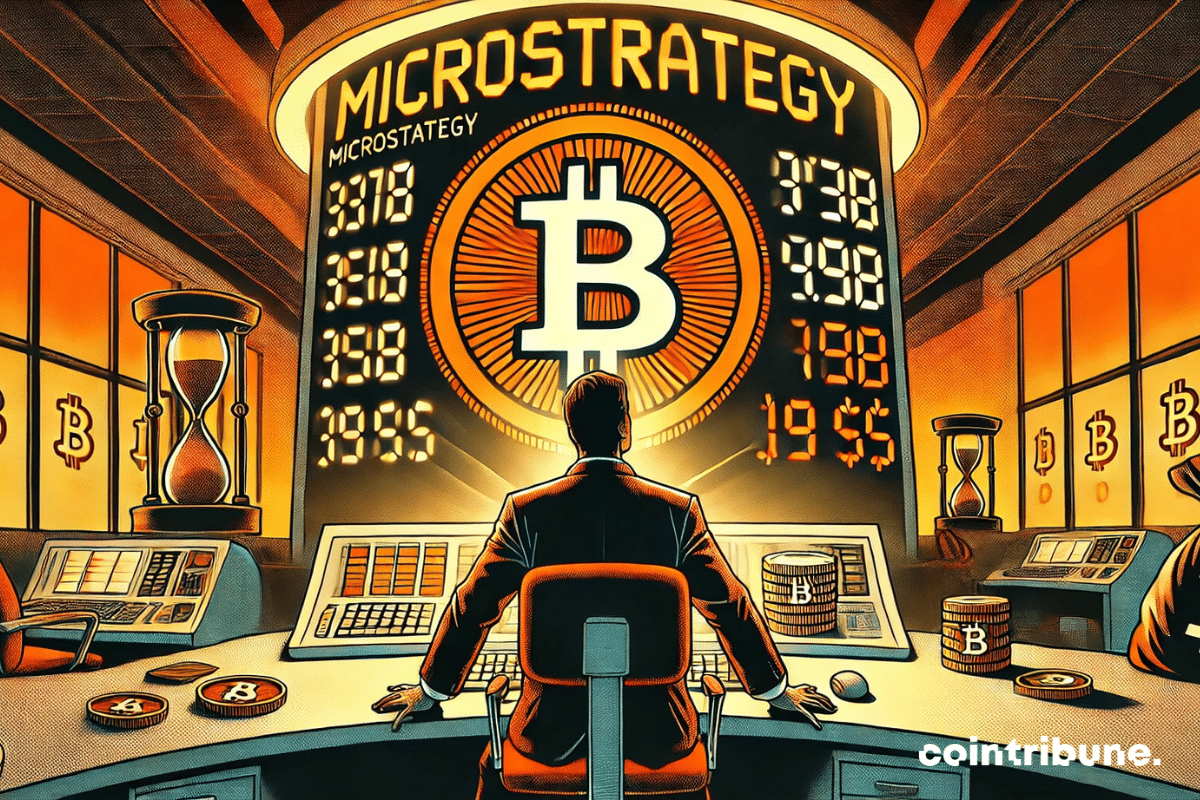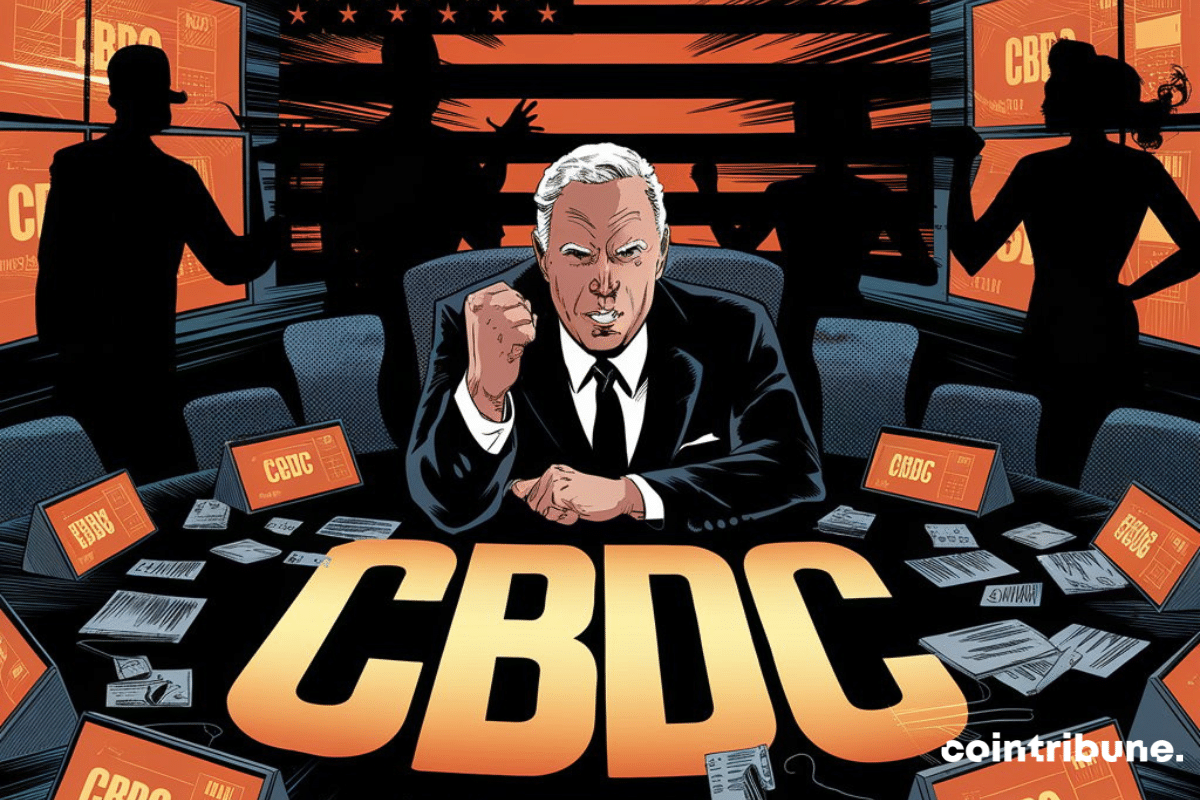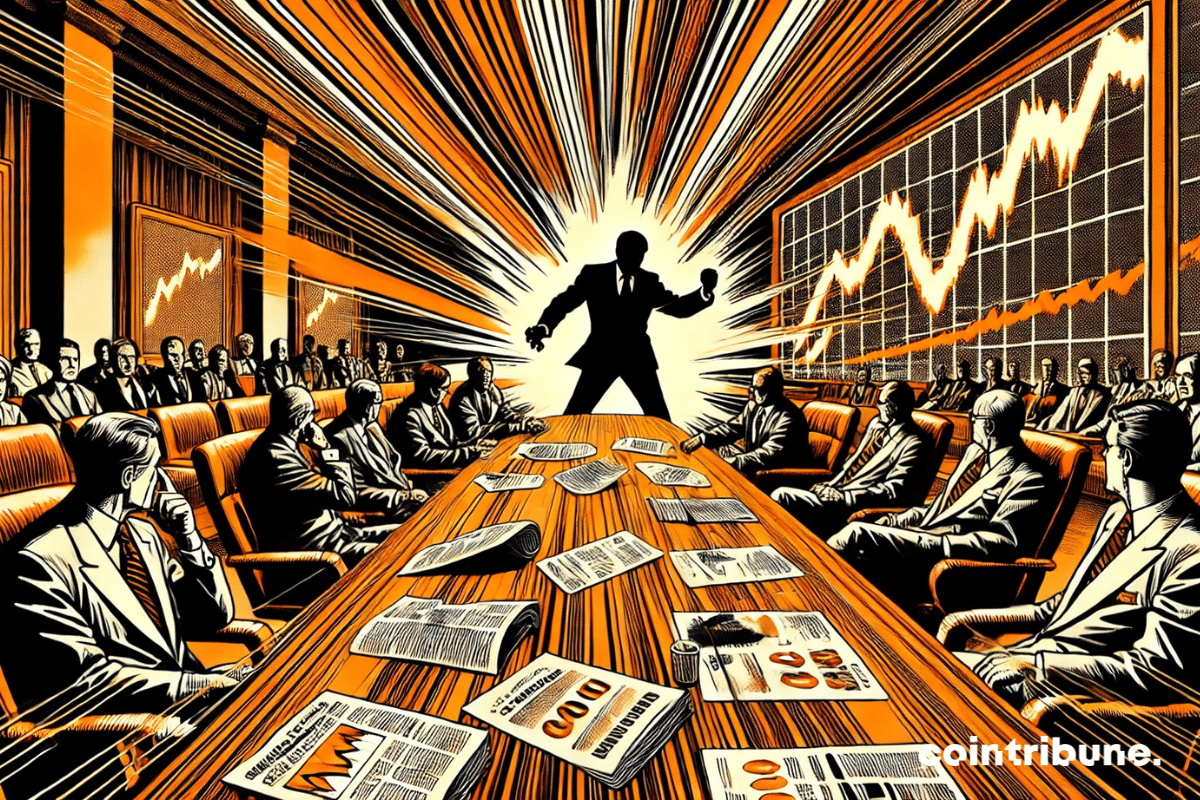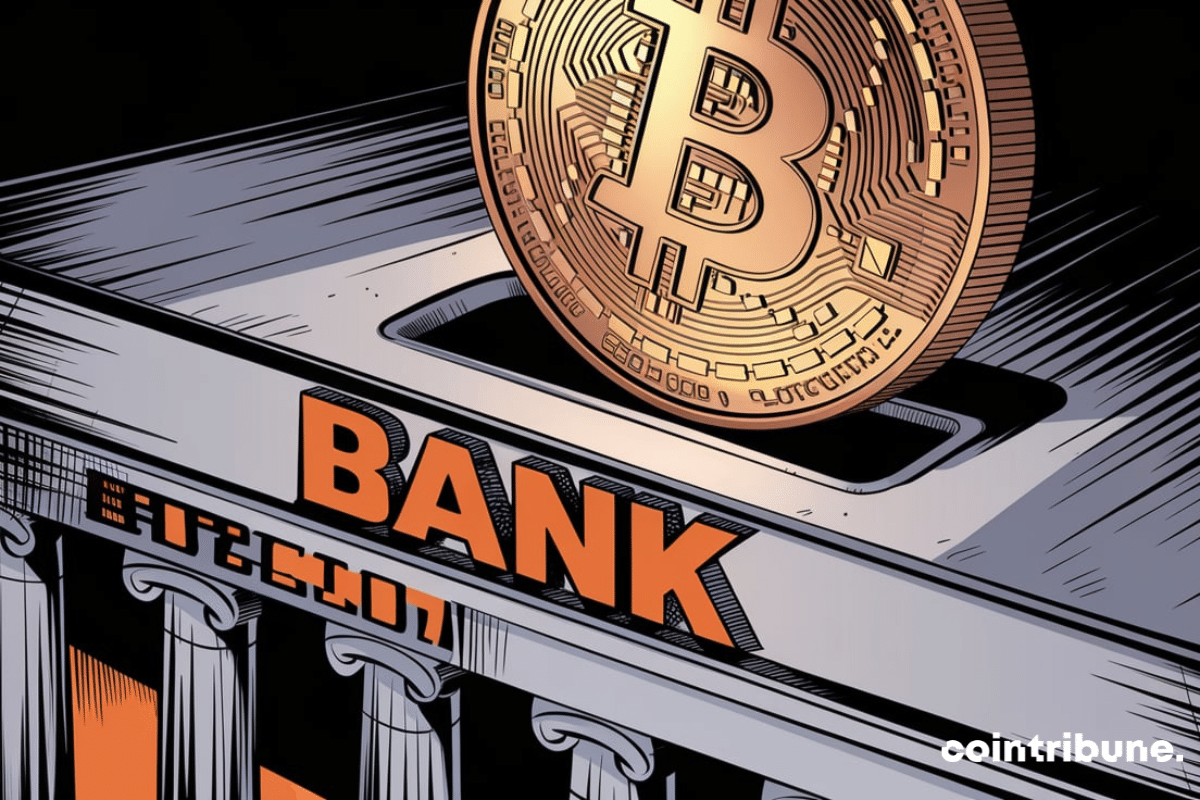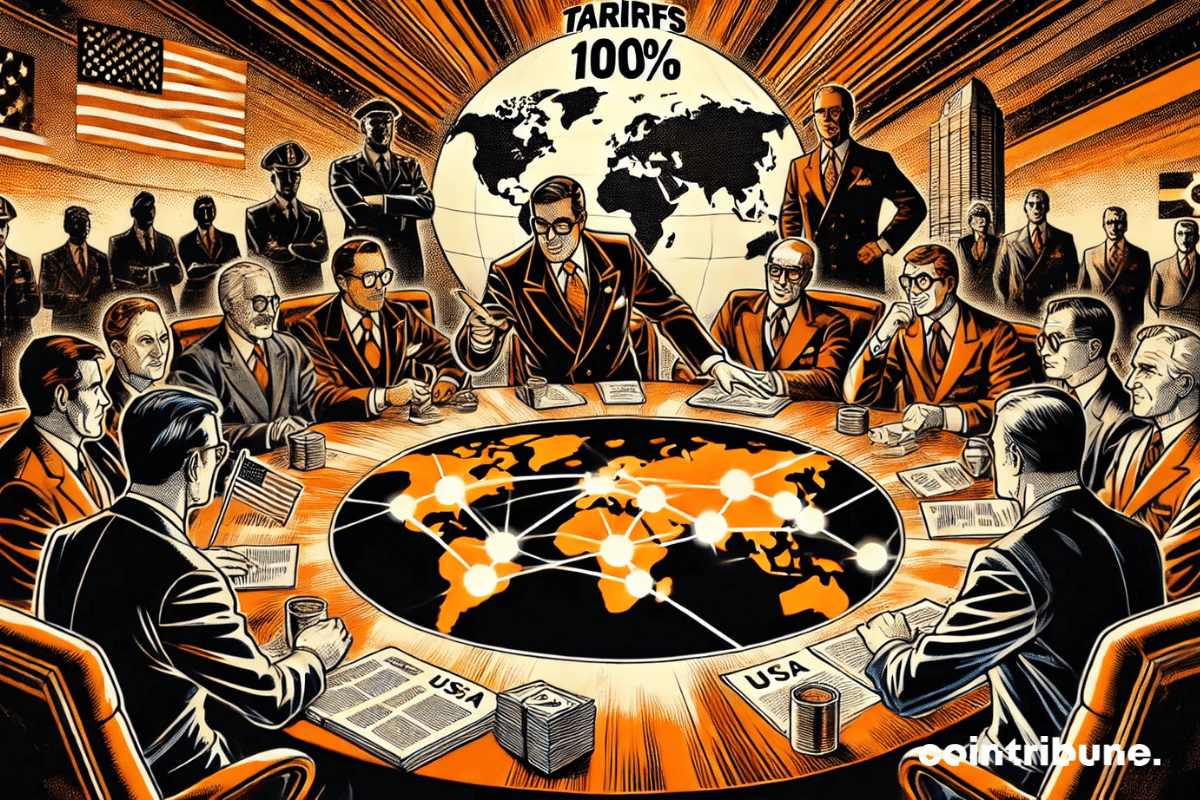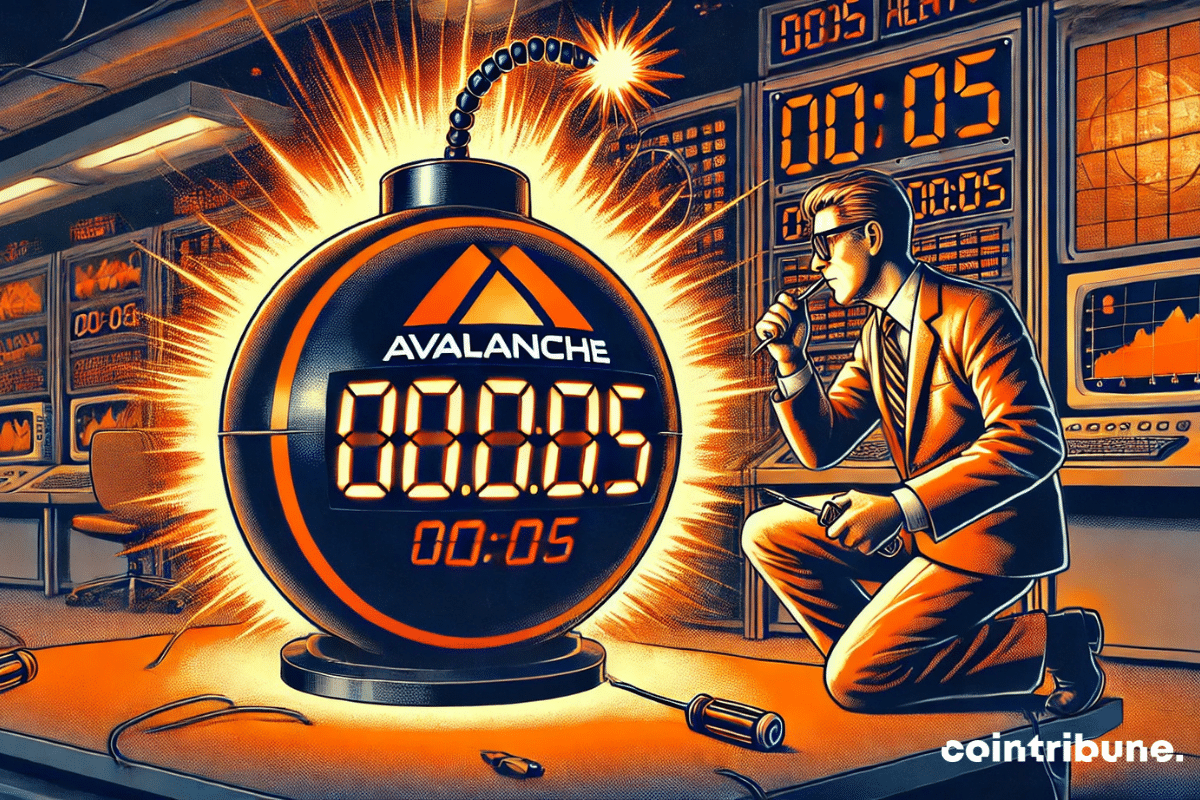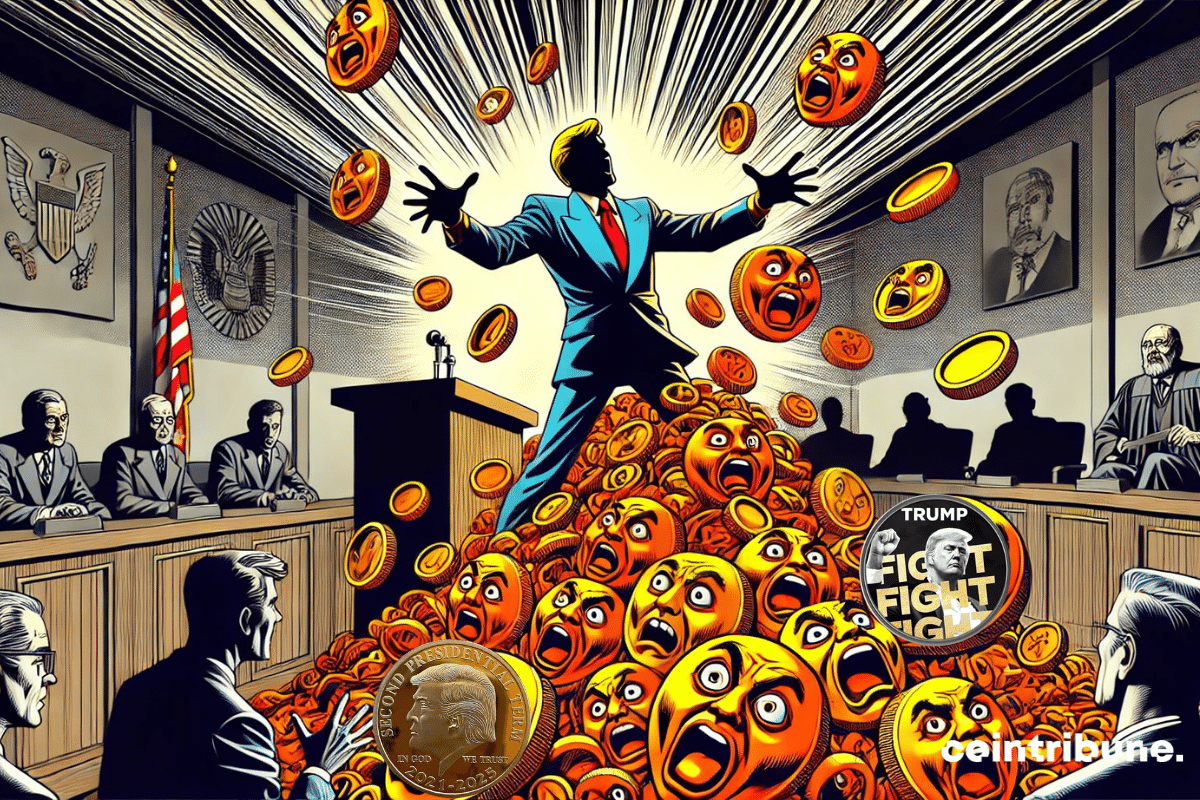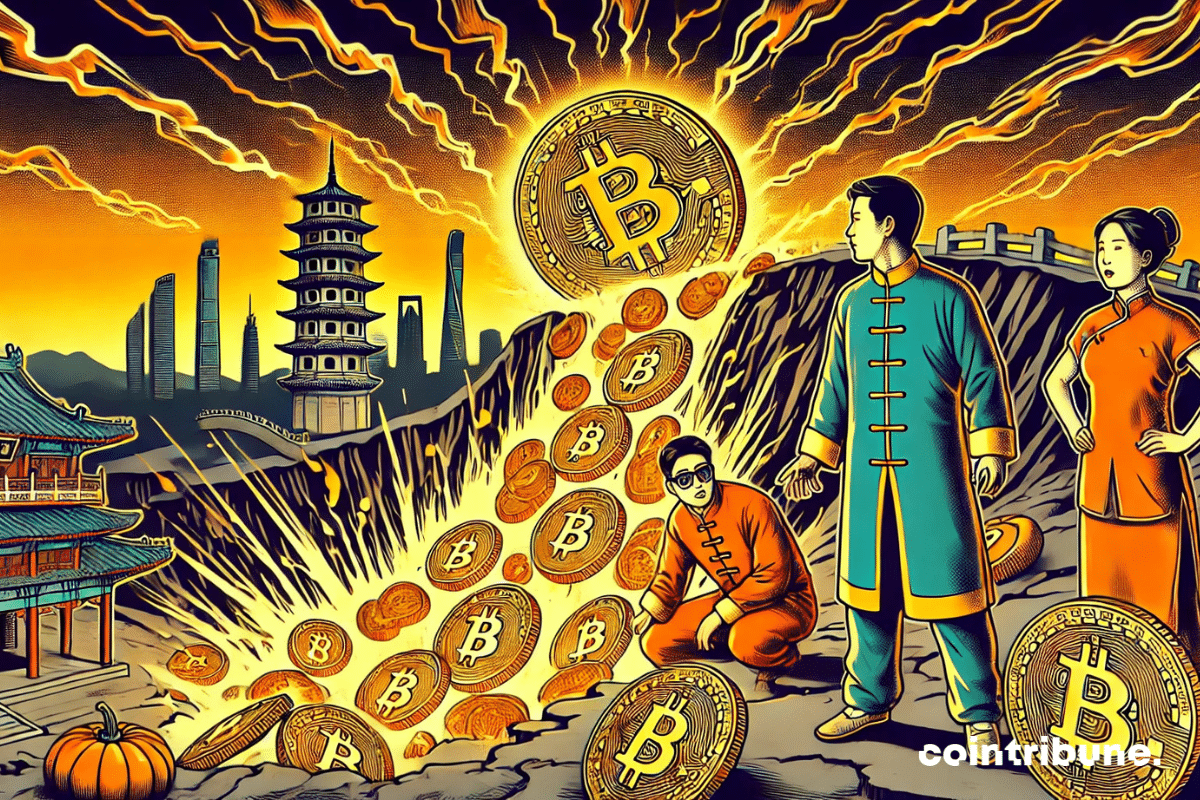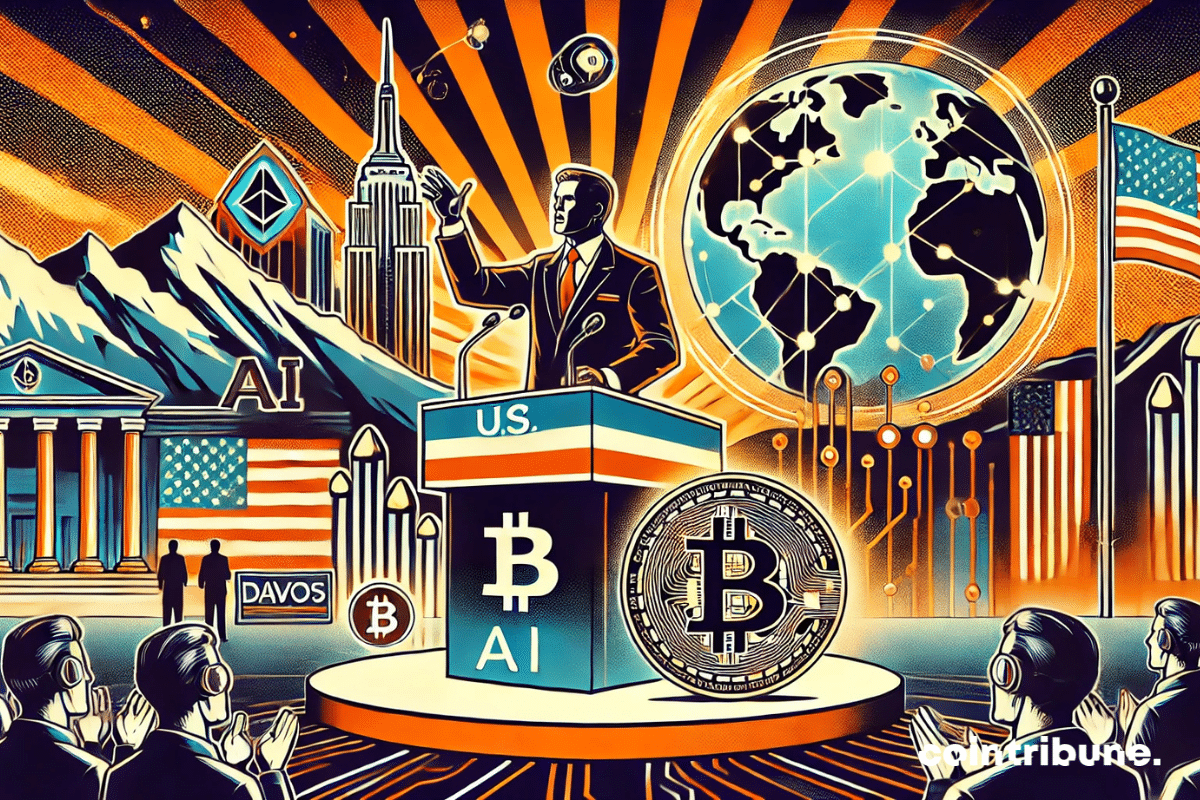The return of Donald Trump to the White House in January 2025 marks a historic break in American politics. In less than a week, the president signed 78 decrees affecting various areas such as domestic policy and international aid.
Getting informed
Brutal drop of Bitcoin below $99,000 this Monday, January 27, 2025. This sudden decline reflects investors' concerns over the impending FOMC decisions and technological developments in China, raising worries in the cryptocurrency market.
Michael Saylor, co-founder of MicroStrategy, recently reported a possible imminent new acquisition of Bitcoin (BTC) this January 27, 2025, as the crypto falls below $99,000. According to the data, MicroStrategy currently holds 461,000 BTC, valued at around $48.4 billion, surpassing US government reserves. Is a rivalry on the horizon?
Solana, playground of an ambitious Virtuals, sees the birth of SOL reserves and bright ideas for a limitless crypto future.
In 2025, bitcoin continues to break impressive records. With a growing number of wallets holding at least $100 and unprecedented network security, the cryptocurrency shows signs of massive adoption and increased trust. Discover the notable achievements of BTC this year.
Altseason dances on a tightrope: a robust Bitcoin and declining dominance, that's the recipe to ignite alternative cryptos. But nothing is ever simple.
The excitement surrounding the TRUMP memecoin and the prospects of spot ETFs is pushing Solana (SOL) to new heights. With record volume on DEXs and strong institutional accumulation, the asset shows promising technical signals for a potential 25% increase.
The dream of owning a detached house with a garden, shared by nearly 80% of the French according to a recent study, could soon become unattainable. The reason is a reform introduced by the Climate Resilience Law which aims to reduce land artificialization to preserve natural, agricultural, and forested areas. By 2050, this measure aims to achieve "net zero artificialization," which radically changes urban planning rules. This project, although ecological, is already causing a surge in the price of buildable land and limiting its availability, raising concerns among future homeowners and real estate professionals.
Between record figures and subtle strategies, BlackRock's Bitcoin ETF charts its course. The shine of the crypto beacon lights up finance.
The world of artificial intelligence is buzzing with the arrival of DeepSeek R1, a revolutionary open-source model developed in China. This bold project challenges the dominance of established leaders like OpenAI, thanks to remarkable technical performance and unprecedented accessibility. Indeed, unlike proprietary models, DeepSeek R1 relies on the complete openness of its code and reduces usage costs to a fraction of those offered by its competitors. As the boundary between closed innovation and open-source solutions blurs, this advancement raises many questions: does it mark a sustainable democratization of AI or a disruption of the economic balances in the sector?
Elon Musk, the famous entrepreneur and innovator, is currently exploring the use of blockchain technology to reduce the expenses of the U.S. government. This initiative is led by the Department of Government Efficiency (DOGE), a new entity he oversees, created to modernize federal operations and maximize the efficiency of the U.S. government.
Global economic uncertainties and growing distrust in fiat currencies are disrupting investors' choices. Robert Kiyosaki, author of the famous Rich Dad Poor Dad, warns of the fragility of the US dollar, weakened by rampant inflation and deemed irresponsible monetary policies. According to him, bitcoin, gold, and silver are emerging as reliable safe havens in this crisis context. Through two economic principles, Gresham's law and Metcalfe's law, Kiyosaki provides insights into the growing role of bitcoin as a credible alternative and a tool for preserving value against the depreciation of traditional currencies.
The purchasing frenzy of short-term Bitcoin holders, combined with the constant accumulation by long-term investors, creates a particularly favorable context for 2025. This dynamic could keep the BTC price above 100,000 dollars in the coming months, according to the latest analyses.
Ripple Labs recently requested the U.S. Court of Appeals for the Second Circuit to set a deadline of April 16, 2025, for filing its counter-brief in its ongoing litigation with the SEC (Securities and Exchange Commission). This request, which could be decisive for both parties, represents a legal strategy by Ripple to challenge certain rulings of the district court that favored the SEC regarding the sales of the XRP crypto.
Pierre Rochard, Vice President of Riot Platforms, recently accused Ripple Labs of being the main obstacle to the creation of a strategic Bitcoin (BTC) reserve in the United States. According to Rochard, Ripple is actively pushing for a multi-asset reserve that includes XRP, rather than an exclusive BTC reserve! A purely selfish behavior motivated by personal interests, according to the expert.
Bitcoin continues to attract the attention of investors, galvanized by bold forecasts projecting its price beyond $150,000 in the coming years. However, on-chain data reveals warning signals. According to the Bitcoin Cycle Indicators Index (IBCI), a key tool for analyzing market trends, this asset may be approaching a cycle peak. These observations raise questions about the sustainability of the current momentum and the risks of a potential correction.
For several years, MicroStrategy has established itself as a leading figure in the institutional adoption of Bitcoin, accumulating over 450,000 BTC in its reserves. This bold strategy, led by Michael Saylor, has earned the company a central position in the crypto ecosystem. However, a new tax regulation in the United States could disrupt this balance. The company could potentially owe taxes on its unrealized gains, estimated at $19.3 billion. This unprecedented development in the crypto field raises critical questions about the implications of these rules for companies exposed to these assets and the future of investment strategies.
The ban on central bank digital currencies (CBDCs) in the United States by Donald Trump is disrupting the global dynamics of state-run digital currency projects. This historic decision raises questions about the future of CBDCs, particularly in Europe where the ECB is maintaining its course towards a digital euro.
The relationships between political leaders and financial institutions are going through a phase of great tension. Donald Trump, the President of the United States, has strongly criticized the Federal Reserve (Fed) and is calling for an immediate reduction in interest rates. This appeal, made during the World Economic Forum in Davos, comes at a time when the Fed, led by Jerome Powell, is maintaining a cautious approach in the face of persistent inflation and a strong labor market. Such a showdown highlights critical stakes for the American economy, raising questions about the independence of central banks on a global scale.
Donald Trump redefines the future of crypto with a decree banning CBDCs and favoring stablecoins. Discover his vision to make the United States a global leader.
The decree by Donald Trump and the repeal of the deadly accounting standard SAB 121 are very promising for bitcoin. Promise Kept Donald Trump promised that his government would stop putting obstacles in the way of bitcoin. This promise has been fulfilled with the decree “Strengthening…
Economic tensions between major powers are reaching a new level. The President of the United States, Donald Trump, has issued a direct threat to the member countries of the BRICS alliance, which are seeking to reduce their dependence on the U.S. dollar. In response to these de-dollarization initiatives, he announced 100% tariffs on their exports to the United States. This stance, accompanied by the establishment of a new agency to collect these customs duties, reflects a clear intent to defend the supremacy of the dollar and to counter any challenges to American economic hegemony. As the BRICS explore alternative payment systems, this statement could redefine the power dynamics on the global geopolitical and commercial stage.
The SEC has just revoked the accounting bulletin SAB 121, and removed the constraints on financial institutions in the United States. This decision now paves the way for increased adoption of DeFi services and strengthens the position of Ethereum in the crypto landscape. With these changes, Ethereum could experience a surge in investor interest, and very soon reach $7,000!
Despite a 14% drop, the AVAX crypto shows an increase in trading volume and accumulation of investors. Detailed analysis!
Vitalik Buterin, co-founder of ETH, recently shared his vision for the future of the Ethereum blockchain in 2025, emphasizing the importance of layer 2 (L2) solutions and strengthening the role of Ether in the ecosystem. Additionally, he unveiled an unprecedented technique that will enable Ethereum to achieve 100,000 crypto transactions per second! Which one?
President Donald Trump signed an executive order that upends the American approach to crypto. This text marks a break by excluding two key players, the Federal Reserve (Fed) and the Federal Deposit Insurance Corporation (FDIC), from regulatory discussions.
Bitcoin, this $100,000 digital mirage, attracts Morgan Stanley into a dance where profits skyrocket and sanctions loom.
Ethereum co-founder Vitalik Buterin is concerned about the impact of "political memecoins" like TRUMP. He warns about their potential to fuel political corruption, especially during presidential campaigns.
Government decisions regarding cryptocurrencies often have a major impact on the markets, but the scale of China's recent action represents a significant turning point. Beijing has sold 194,000 bitcoins that were confiscated in 2019 during the dismantling of the PlusToken network, one of the largest Ponzi schemes in crypto history. Valued at nearly $19.7 billion, this massive liquidation raises questions about its economic implications and illustrates the growing complexity of the relationship between states and cryptocurrencies. While Bitcoin continues to establish itself as a global store of value, this action by China highlights the strategic role that governments can play in the evolution of this rapidly changing ecosystem.
As artificial intelligence and cryptocurrencies are shaking up the global economy, Donald Trump seized the opportunity at the World Economic Forum in Davos to outline an ambitious vision. The American president declared his intention to make the United States the global leader in these strategic technologies. This announcement fits into a broader desire to re-industrialize the country by leveraging its vast energy resources. However, these promises raise many questions, both about their implementation and the forthcoming economic and geopolitical implications.





